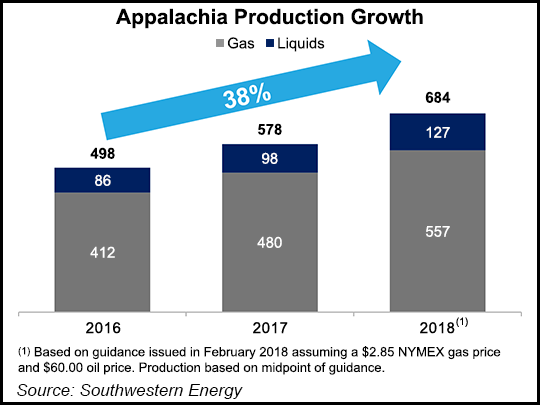Regulatory | NGI All News Access | NGI The Weekly Gas Market Report
Pennsylvania Court Denies Southwestern, Won’t Reconsider Rule of Capture Opinion
The Pennsylvania Superior Court has declined to reconsider an opinion issued in April that could find unconventional oil and natural gas producers liable for subsurface trespass.

The court denied Southwestern Energy Co.’s application for reargument last Friday. The company sought an en banc hearing before the 20-court panel. Southwestern said it would appeal to the state Supreme Court, adding that it was eager to bring clarity and certainty to the case, which it has argued is of “national significance.”
In its opinion, the court called into question the rule of capture and how it applies to unconventional development. The rule is considered a fundamental principle in energy law that has been applied to conventional development from shallow reservoirs for more than 100 years. It prevents liability for draining migratory oil and gas from underneath private land.
If the court’s opinion were to stand, Pennsylvania unconventional producers could find themselves liable if rock fissures formed through hydraulic fracturing (fracking) techniques deep underground stretched beneath unleased property near drilling units. While attorneys have disagreed on the potential impact of the case, Southwestern cautioned that the court’s decision could hamper oil and gas production if it isn’t revisited.
The opinion reversed and remanded the case to a lower court to determine if Southwestern committed trespass with its shale wells.
Filed in 2015 in the Susquehanna County Court of Common Pleas by Adam Briggs, his wife and other family members, the plaintiffs allege that Southwestern for years has been unlawfully extracting gas under an 11-acre unleased parcel of land they own from an adjoining leased property. The Briggs are seeking punitive damages.
© 2024 Natural Gas Intelligence. All rights reserved.
ISSN © 2577-9877 | ISSN © 1532-1266 | ISSN © 2158-8023 |
